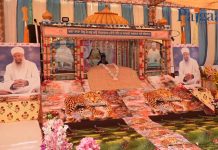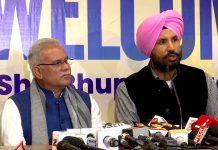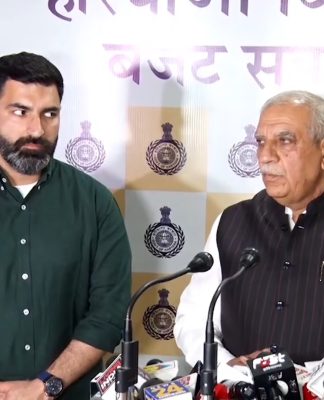Gurdaspur, September 2: When Ramesh Rana, vice-president of the Indian Federation of Trade Unions (IFTU), Punjab unit, saw the protagonist of Hindi film, ‘Article 15’, being scoffed at for buying a drinking water bottle from a shop owned by lower castes, he was reminded of his own 15-year-long struggle in the Dhar block to ensure lower caste Hindus get their share of water.
In 2004, Rana was a witness to the shocking truth that the “elite classes” were not allowing water to flow downstream from the mountains because the area was inhabited by lower castes. He continues to wage a battle, but faced with society’s steadfast stubbornness in correcting a wrong, has lost the hope of winning it.
Two days after ‘Article 15’ was released in June, Rana held a meeting of office-bearers of the Democratic Mulazim Federation (DMF), comprising Asha, anganwadi and forest workers, Construction Workers’’ Union and the Pendu Mulazim Union. They were asked to collect money by tapping various sources.
The amount was given to union members to enable them to see ‘Article 15’ being screened in Pathankot.
“We are now generating funds to bring projectors so that we can screen the film in villages, particularly those dotting the International Border. It is in these areas where the caste fault lines are discernible even 70 years after Independence. In the Dhar block, there are some villages where even now the upper castes taste water first before it is allowed to flow downstream. Likewise, in the reserved Assembly seat of Dinanagar, the system is too rigid to be broken,” said Rana.
Amarjit Shastri, vice-president of the Punjab DMF, has been tasked with preparing lists of villages where caste-based prejudices still exist.
“To our surprise, after touring vast areas of the Gurdaspur parliamentary constituency, we found the stigma of caste and bias is firmly entrenched in almost all places,” said Joginder Pal Gharala, who accompanied Shastri on his tour in his capacity as president of Gurdaspur Construction Workers’ Union.
Shastri has also been asked to rent projectors from Jalandhar and Amritsar.
“We will be screening the film in village community halls. We understand that conventional customs are too deeply entrenched to be reversed through one single measure like screening a movie. Still, we are trying to bring about a balance as caste divides are referred to in the movie,” he said.
















































